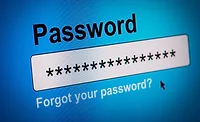U.S. Consumers Remain Carelessly Indifferent to Online Security and Privacy
New research says that in a post-Snowden world, consumers are doing little to protect their online lives.
The study, conducted in partnership with Morar Consulting, an independent third-party research firm, found that while two thirds of respondents say they would like extra layers of online privacy and security, their actions prove otherwise. It also found that few consumers are using readily accessible, but highly sophisticated, tools such as email encryption programs, anonymity software or privacy-enhancing browser plug-ins – and less than half even know what a VPN is.
“Even with the NSA revelations and a seemingly endless onslaught of celebrity hacks and public data breaches, Americans still turn a blind eye to their vulnerability online,” said Danvers Baillieu, the chief operating officer of Hide My Ass!. “While many people say they want to protect themselves online, it is difficult for them to sacrifice things like their level of social presence. For too many, the gratification of a ‘like’ severely outweighs the investment in building a digitally secure life. When it comes to choosing either security or convenience, the latter almost always wins.”
Key findings of the study include:
- 63 percent of respondents have experienced online security issues, and, of those, only 56 percent have made permanent behavior changes afterward
- Nearly 1 in 4 (24 percent) use unsecured public Wi-Fi, leaving their information wide open to prying eyes, quite often or all the time
- • Two thirds (67 percent) say they would like extra layers of privacy, but shockingly few use the currently available tools ◦ Only 16 percent utilize privacy-enhancing browser plug-ins
- Only 13 percent use two-factor authentication
- Only 11 percent use a VPN ◦ Nearly half (44 percent) are not at all familiar with VPNs
- A mere 4 percent use anonymity software (such as Tor)
- 70 percent note that the exposure of personal information online reduces their level of social media use and presence ◦ But only a quarter have strict privacy restrictions in place on social media
- While two thirds say they are likely to shred physical documents containing personal information (SSN, home address, birth date, etc.), they are happy to post this information online: ◦ Email address (51 percent), Home address (26 percent), Personal phone number (21 percent)
Through the study, which interviewed more than 2,000 individuals at a representative sample of the U.S. population, HMA! also found how consumers approach their online security and privacy. Leveraging these findings, HMA! defined the “Digital Life Spectrum,” which includes five distinct user personas, complete with their celebrity doppelgangers.
These personas revealed different approaches to online life, including the following:
• The Old School Sharer — users who are hesitant to share personal information or participate regularly on social media and lack confidence that they are protected from threats.
• The Cautious Contributor — users who, while also apprehensive about new technology, are more socially inclined and learn from the mistakes of the past.
• The Online Nudist — users who seek out and bear everything to their online community, craving a high amount of interaction with their peers through social media.
• The Social Savvy Butterfly — users who, though social and seeking interaction from online communities, have stepped up their game and take precautions to ensure their personal information stays safe.
• The Digitally Enlightened — users who employ the highest levels of security, which enables them to safely maintain their highly active digital lives.
Through identifying these personas, thestudy found that while some users take a more reactive approach, tentatively dipping a toe into their online life, others take a more attentive, proactive approach, embracing the digital revolution.
Looking for a reprint of this article?
From high-res PDFs to custom plaques, order your copy today!








